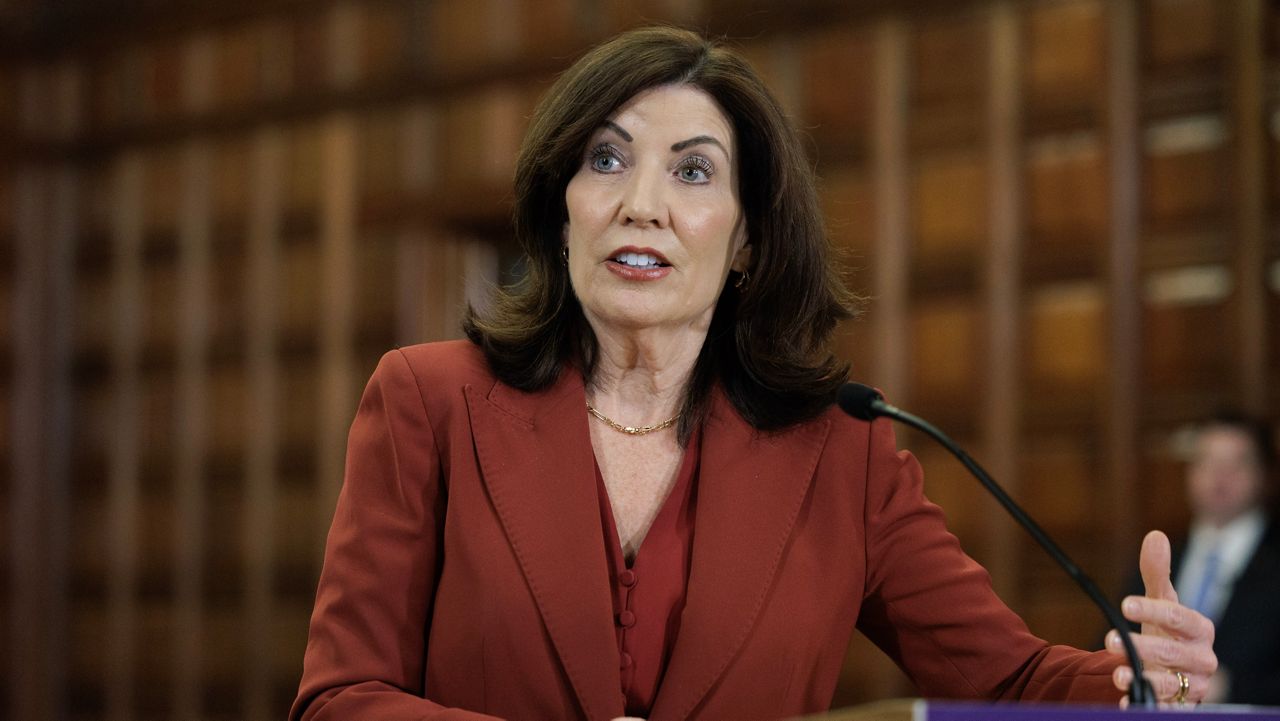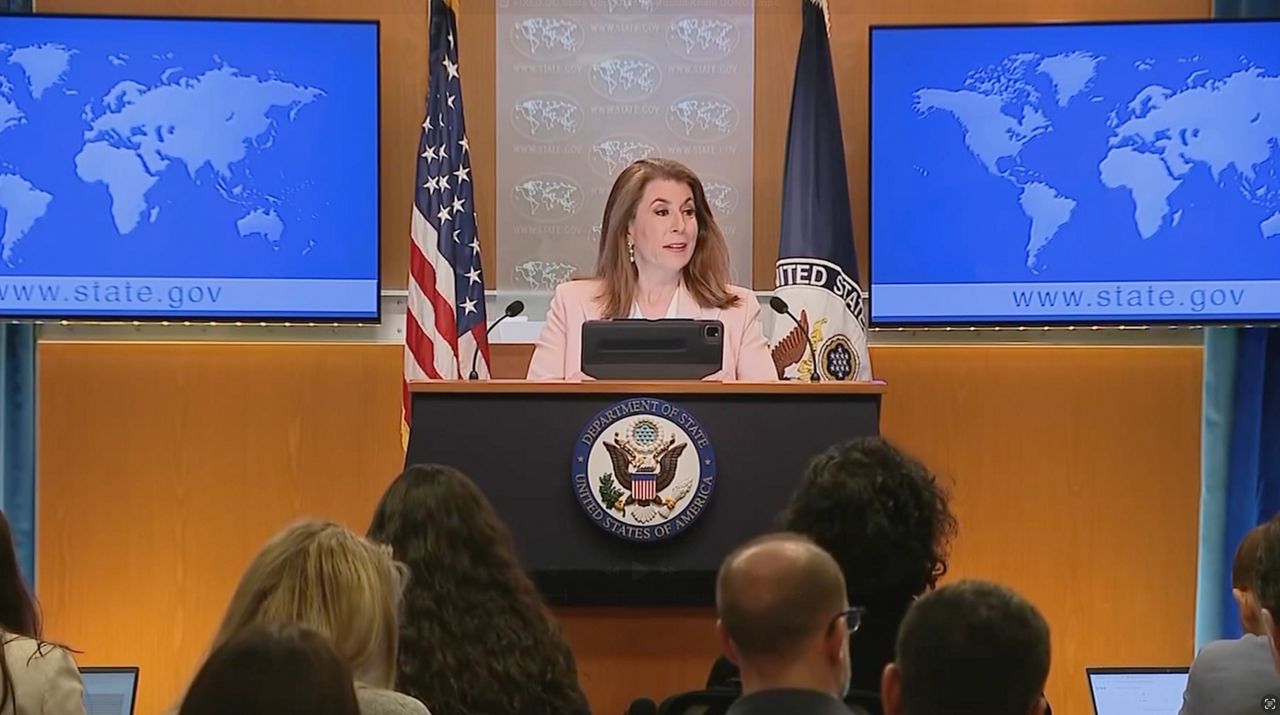State lawmakers are on track to return to Albany Tuesday to try to close on a budget deal by their new deadline April 4.
Among the many open topics is New York’s foray into the world of artificial intelligence and a multi-million dollar investment in a research hub.
What You Need To Know
- Gov. Kathy Hochul is fighting to create an “Empire AI Consortium”
- The plan enlists eight universities to lead the way on artificial intelligence research — with the help of almost $400 million in private and public dollars
- Sources told NY1 that negotiations tied to limiting deceptive AI could end up secondary to the budget deal and dealt with before session ends in June
Gov. Kathy Hochul is fighting to create an “Empire AI Consortium.”
The plan enlists eight universities to lead the way on artificial intelligence research — with the help of almost $400 million in private and public dollars.
“We’re a little bit behind the eight ball here in terms of investments in AI,” said Joanna Peña-Bickley, CEO of artificial intelligence company Vibes AI. “We’re competing with 50 other states for the most coveted talent in all of the world right now.”
A design engineer by trade, Peña-Bickley is also the former head of research and design for Alexa Devices — Amazon’s famous virtual assistant.
She says, before pens are put down on a budget deal, New York’s vision must expand.
“One of the most important things is actually opening it up to the nonprofit sector, who has research capabilities that are a little bit more nimble, and can address some of the short and midterm needs that AI actually is posing today within our workforce,” she told NY1.
“Companies are motivated by profit. That is what they exist to do. The researchers aren’t motivated by profit, the schools aren’t,” Julie Samuels, executive director of Tech NYC, said.
The nonprofit represents city-based technology companies and advocates for state-level policies.
“What we need to enable is the kind of research, the kind of development — both of these technologies directly and of the people who use these technologies — to research other things that isn’t just motivated by profit, but is actually for the greater good,” she said.
But there are concerns about the way the consortium would be set up.
Kristen Gonzalez chairs the state Senate’s Internet and Technology Committee.
“What’s important anytime we use public dollars is to make sure they’re used effectively, intentionally and that there’s clear planning and transparency and accountability around any programming,” said Gonzalez, a Queens Democrat.
She told NY1, she thinks the final proposal should include a planning council made up of academic and state government representatives to oversee ethical research, safeguard data and protect jobs.
“What can this do for workforce development and training, because there’s a clear gap that exists in faculty, both for universities and for our primary education,” she said.
Also on the table: cracking down on misinformation.
“What we’re seeing with generative AI and deep fakes is a real threat to elections and democratic conversations,” said Assemblyman Alex Bores, a Manhattan Democrat.
He’s pushing for more security measures around image and audio manipulation.
New Yorkers are preparing not only to cast ballots in the presidential election — but many of the 213 members of the state legislature face primaries come June.
“I think what the state of New York is attempting to do is put in place a framework by which we can begin to really protect people’s data. Because without the data, deep fakes are actually not. You’re really not able to create them,” said Peña-Bickley.
“We want to ensure that the security of our elections, be it not just at the ballot box, but in the run up to the ballot,” she added.
Although those policies are at play, sources told NY1 that negotiations tied to limiting deceptive AI could end up secondary to the budget deal and dealt with before session ends in June.









